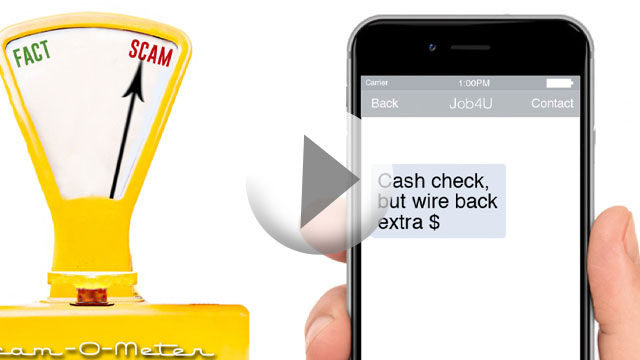Getting paid to shop sounds like a dream job — especially if you’re looking for a side job or going to school full-time. Don’t let your dream job turn into a nightmare. Find out how to avoid mystery shopping scams.
What’s Mystery Shopping?
To learn more about their customers’ experiences, some retailers and restaurants hire people to go into their businesses to try their products or services and report on their experiences. These mystery shoppers, or secret shoppers, typically pay for the product or service themselves and then get reimbursed by the retailer. Sometimes the retailer will also pay them a little bit extra for their work.
Many professionals in the field think of mystery shopping assignments as part-time or occasional work — not something to replace a full-time job.
Avoid Mystery Shopping Job Scams
If you have to pay an upfront fee to become a mystery shopper, that’s always a scam. When you’re looking for mystery shopper jobs, here are ways to avoid scams:
- Don’t pay to work. Honest companies pay you, not charge you, to work for them. Even if they say the money is really for a certification, training, or a guaranteed job, don’t do it. No real job, including mystery shopping, involves paying to get the job. You’ll find out the certification is worthless, and there’s probably no job.
- Don’t pay for a list of mystery shopping jobs. That information is available for free.
- Never wire money as part of a mystery shopping assignment. A scammer might send you a check for buying products, tell you to deposit it, and wire money back for “taxes,” “fees,” or some other reason. This is a classic scammer move. Wiring money is like sending cash — once you send money through a company like MoneyGram or Western Union, you probably won’t get it back.
- Never deposit checks into your bank account and send money back. It doesn’t matter who it’s from or what they say it’s for — don’t do it. This is a fake check scam. Any money withdrawn from your account is your own money since the check is worthless.
- Don’t apply for mystery shopping jobs that guarantee you’ll make a lot of money. Only scammers make these guarantees. And only scammers say that you’ll be able to quit your job and do this full-time. Mystery shopping jobs are typically part-time work and don’t usually pay enough to replace a full-time job.
- Don’t respond to a job notice saying it’s with MSPA. The Mystery Shopping Professionals Association (MSPA) is a trade association for the customer experience industry. MSPA doesn’t hire or advertise for mystery shoppers. But they do have a list of service provider companies with possible mystery shopping jobs.
Also, search online for the company name with the words “review,” “complaint,” or “scam.” Check to see what others are saying about the company before you pursue a job with them. And talk with someone you trust to get their opinion before you take the job.
Report It to the FTC
If you spot or lose money to a mystery shopping scam, report it to the FTC at ReportFraud.ftc.gov and to your state attorney general.

